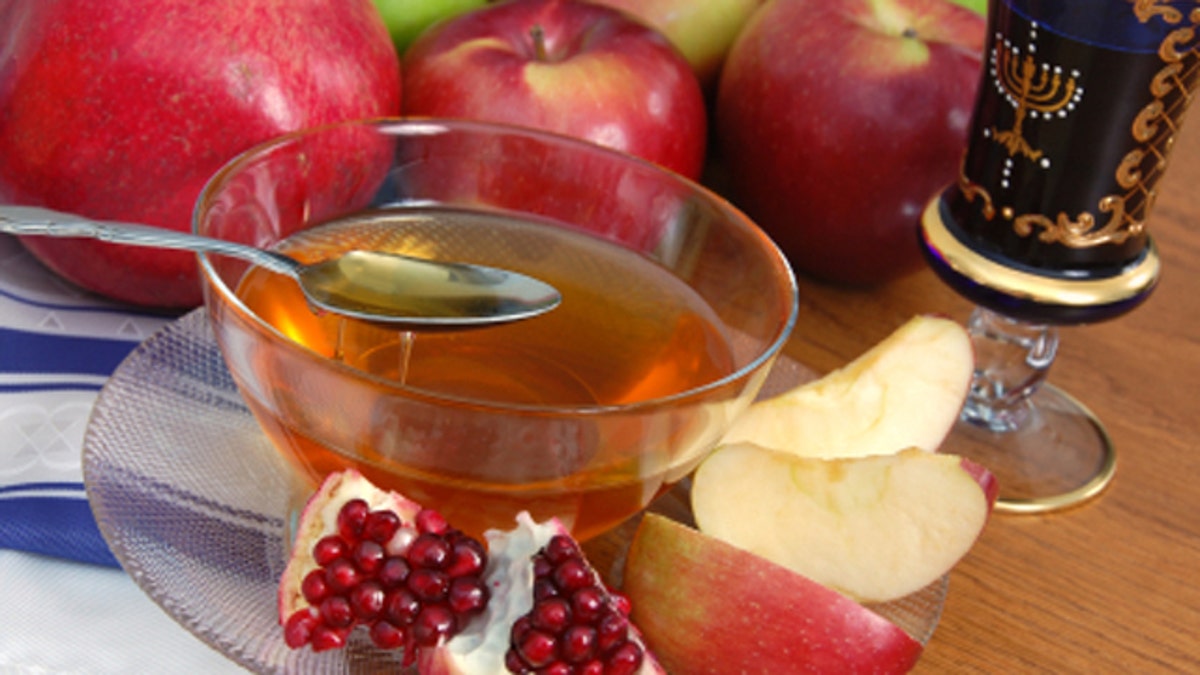
(iStock)
The Jewish New Year – Rosh Hashana in Hebrew – begins at sundown Sunday, marking the start of the year 5779. And even if you’re not Jewish, this holiday has a message for you.
If you know a little about Rosh Hashana you probably associate it with traditions like eating apples dipped in honey (for a sweet new year) and the blowing of the shofar (ram’s horn).
But to understand the true spiritual significance of this major Jewish holiday, you have to go a little deeper.
Let’s start by contrasting the Jewish New Year with traditional New Year's Eve festivities.
Ever wonder where the custom came from to get drunk on Dec. 31 and start the new year bleary eyed and hung over? Believe it or not, the custom dates back all the way to ancient Rome, when the calendar consisted of 12 months, each 30 days long, which left roughly five days over at the end of the year.
Those Romans weren't shy about finding excuses to throw a good party. So on those five extra days, they grabbed their wine jugs and sought to recreate, literally through drunkenness, the primeval chaos from which the world was formed.
Think about that when they're pouring the champagne next New Year’s Eve.
By contrast, Rosh Hashana is a far more solemn affair. According to Jewish tradition, this is a day when God reviews the lives every single one of His creatures, determining what type of year each of us will have. Our health, our livelihood, and even our very survival over the course of the next 12 months are set on the first night of Rosh Hashana.
Secular New Year's Eve celebrates that sense of the pointlessness of life. Since nothing matters, since no one's in charge, since the whole thing began in chaos and has no real meaningful end point, let’s just party on.
The Mishnah, an ancient compendium of Jewish law, offers the metaphor of God as a shepherd, with every human being, not just Jews, passing under His staff for His review.
According to tradition, we have until Yom Kippur (the Day of Atonement), which falls 10 days after Rosh Hashana, to avert any negative decrees we may have received on that first sacred night of the new year.
Prayer, generosity, and repentance are the keys to receiving a positive verdict for the new year.
A second vital aspect of Rosh Hashana is the celebration of God's ascent to His throne. Jews don't see God as an old man with a white beard in the sky. Heaven knows where that image came from.
Instead, an invisible, incorporeal, God is said to have taken His place on an equally invisible throne ages and ages ago. So Rosh Hashana is the anniversary of God's coronation. It’s the day when God's dominion over the world is renewed.
When I was in college, the rabbi of Chabad House of Amherst, Rabbi Yisroel Deren, quoting the Lubavitcher rebbe, offered a slightly different spin on this message, one that has stayed with me for the past 40 years.
"God," Rabbi Deren said, "if you want to rule over the world, that's your business. But please, God, rule over me."
In our world today, perhaps as in Roman times, society and the heart both point towards nihilism, a sense that nothing important or enduring can exist.
Secular New Year's Eve celebrates that sense of the pointlessness of life. Since nothing matters, since no one's in charge, since the whole thing began in chaos and has no real meaningful end point, let’s just party on.
The message of Rosh Hashana – applicable to men and women of all faiths – is that God's in charge, the world has a purpose, and each of us has a purpose within God's world.
Each of us counts, and God has His eye on each of us. We can improve our lives by becoming closer to God through acts of generosity, repentance and planned – rather than just random – acts of kindness.
So Rosh Hashana comes along to remind us that God rules over the world, and that if we let him, and bring him into our lives, God will rule over each of us as well.
And thus at the core of the holiday we find this prayer: please, God, rule over me.








































